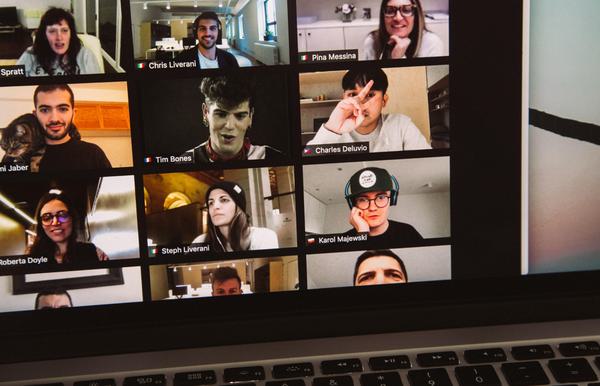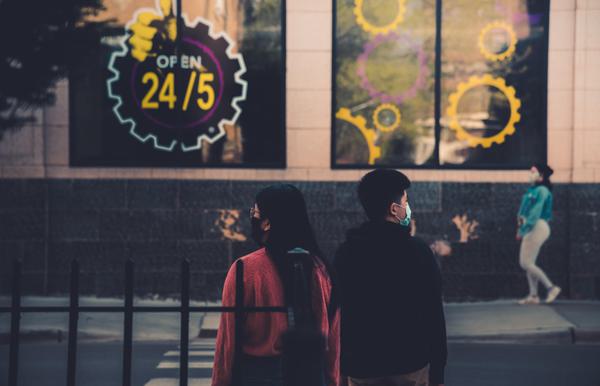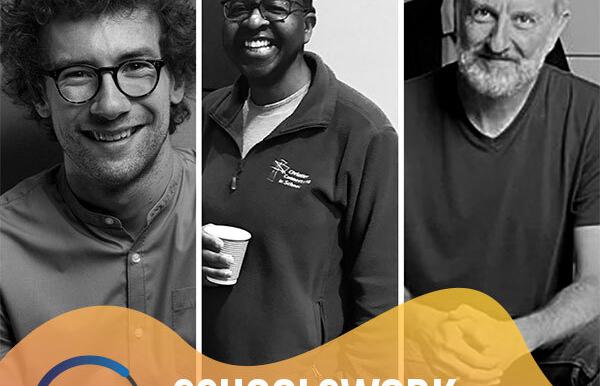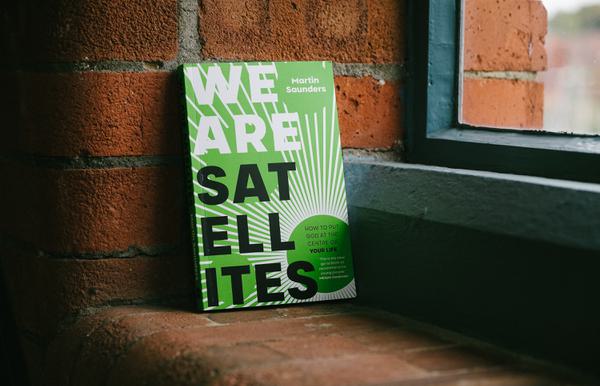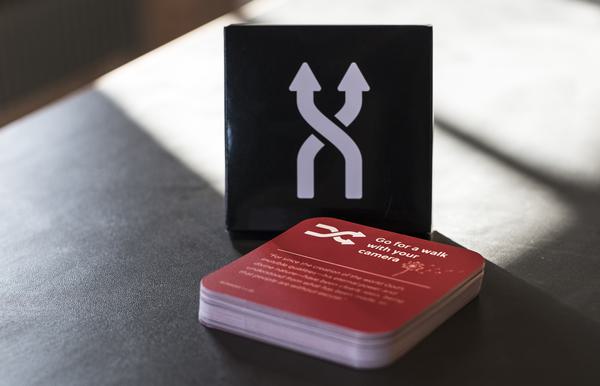RE is in decline in UK schools, but a recent Theos report explores a fresh lens that could save it. Dave Walford dives in and considers the implications for schools workers.
“You’re wrong.”
The year was 2010. I was sat in a GCSE lesson, studying some abstract poetry, when the topic of communion came up as one of the themes of a particular stanza. My teacher asked if anyone in the room was a Christian and wanted to explain what communion was to the rest of the class. It felt like all eyes turned to me as the only ‘public’ Christian in the class, and I realised I couldn’t not try and articulate my understanding of the subject at hand. My 15-year-old hand tentatively rose, and I stumbled through my best description about it being to do with forgiveness and remembering what Jesus had done on the cross.
I was met with a look of derision from the teacher, and then rudely told I was incorrect – she pushed me for a different answer. Not expecting there were going to be follow-up questions, I suggested some ideas about it being something that people did in church together, that the symbols involved were bread and wine. She then shut me down for having the wrong answer to my own faith, as it didn’t line up with what she had down in her notes. I felt humiliated.
Time for change?
It could be argued that for pupils in our schools, RE is often unloved, seldom important and rarely chosen. At its best it can encourage dialogue and understanding, but at its worst, creates binary views on complex issues (like in my story above) and reinforces stereotypes about religion. Is it time for change?
In 2018, the Commission on Religious Education (CoRE) produced a report based on their investigation into the subject of RE, titled Religion and Worldviews: The Way Forward. This may already have been on your radar, or it may have passed you by, but in summation it calls for a grand shift in the way RE is taught in our schools, one that could mark the interwoven link between education and religion for the next few decades.
"Only 12% of 4000 6-15-year-olds were prepared to admit enjoying RE, whereas 47% were able to say they enjoyed science a lot."
I first became aware of this last year in one of our local Luton SACRE (Standing Advisory Council for Religious Education) meetings. (The SACRE is a local inter-faith group that meets with representatives of the council to help decide what the local curriculum for RE is so that it reflects the local context.) However, the Christian think tank Theos has just produced a report ‘Worldviews in Religious Education’ detailing their reflections of the back of the CoRE’s findings.
It begins by painting the harrowing picture of where we find ourselves today in relation to RE. Here are some of the headlines:
- RE is in the bottom four subjects when ranking importance; only Drama, Classics and Latin fared worse.
- Only 12% of 4000 6-15-year-olds were prepared to admit enjoying RE, whereas 47% were able to say they enjoyed science a lot. Only Citizenship had a lower score with 6% enjoying the subject.
- In secondary schools there is a decline in the number of pupils entering for public examinations in Religious Studies, and an increase in the number of schools not offering the subject even though it is required by law.
Despite the fact that every pupil should be engaging in RE, something which hasn’t changed since 1944, the landscape that these facts suggest is worrying at best, and at worst means “that some radical rethinking is necessary if the subject is to survive at all.”
The history of RE
However, the report outlines how this isn’t the first time that the subject has undergone a ‘radical’ shift. Originally, the underlying philosophy of RE was much closer to the idea of Christian confessionalism, trying to rebuild and reclaim something of the Christendom that was rapidly dissipating in the post-war period. It soon became apparent that the priority and focus was teaching Bible knowledge as way of combating cross-denominational differences.
As the UK diversified in religion and belief communities, it became apparent that the curriculum wasn’t reflective of the world that students were living in, it “no longer served the needs of the population”. This was partly due to recognising long-existing religious minorities as well as immigration etc. Also, with RE teaching prescriptive responses to controversial topics, there was a fear of indoctrination. Christendom wasn’t returning and RE needed to reflect that.
"RE is often unloved, seldom important and rarely chosen. At its best it can encourage dialogue and understanding, but at its worst, creates binary views on complex issues and reinforces stereotypes about religion. Is it time for change?”
This moved to the ‘world religions’ paradigm, focusing on informing students so that they had understood the different views on religious and non-religious belief systems that they would come across so that they can interact with a range of people sensitively and respectfully. The hope was that learning about and from religions would allow students to make informed decisions about a wide range of topics.
In the early 2000s it was becoming more and more obvious that, to quote the report, “not all the religious choices that people made were good ones”. Extremism, radicalisation and terrorism were now at the forefront of the news. The idea that all religious beliefs were benign, let alone benevolent, simply didn’t ring true.

Where are we now?
When we look at society today, it seems that the world has changed once more, that society has shifted yet again. Truth seems more relative and subjective than ever before and we live in a multicultural, pluralistic atmosphere where there aren’t simple answers and views aren’t debated or challenged in the way they were in times gone by. A ‘you-do-you’ culture.
‘Worldviews in Religious Education’ highlights this idea with a few case studies. One such case study outlines how the exam board was dictating the way that classroom discussion should go, outlining a binary world where there were ‘right’ and ‘wrong’ answers. This seemed bizarre and counter-productive to the teacher of the GCSE RE class, and she decided to shape the debate differently, focusing on discovery and learning from each other rather than assuming that when challenged, you must learn how to ‘win’ the debate.
This black & white world where complex ideas can simply be put in one easy affirmation that “all Christians believe…” makes me uncomfortable. While there are some valid statements like that, regarding core doctrines, there is also much more ‘grey’ and nuance than a binary view of religion allows for. Even in my denomination, the breadth and depth of theology, viewpoints and practices challenge this idea of a strictly uniform faith, and RE should acknowledge this complexity.
“The ‘big six’ religions aren’t the only major viewpoints on life, and our little world is more global than ever. We should have a subject being taught in our secondary schools which is nuanced and explores the murky grey waters of the spiritual consciousness of our nation, of their school, of their friends.”
‘Worldviews in Religious Education’ also suggests that even if this wasn’t the case, under the current system, we still might run into a problem. If we carried on the multifaith concept today and designed the curriculum to explain all the different belief systems that we have in the UK today, we would either risk further diluting the curriculum, or bolt on so many different additional viewpoints that it would become overwhelming or impossible to teach in the allotted time. For example, the Bahai faith is present and part of the community in Luton and it would be a shame not to teach about their faith, but not at the expense of losing out of one of the groups of people not represented in Luton.
The report sums up the issue with RE today:
The attempt to make the subject spiritual led it away from knowledge of religion. The attempt to make it more academic ended up making it mainly about philosophy. The attempt to study all religions led it into rather superficial caricatures and generalisations and overloaded the curriculum.
On top of all of this, we have the worrying statistics shared at the start. Even if we as a community didn’t deviate from the course put in place by curriculum, even if there weren’t these problems we’ve just shared, Religious Education would still need an overhaul, to stem the bleeding of students not engaging in it. The report highlights that there is a “growing gap” between the world imagined by the current policy makers and the “real religion and belief landscape”.

The solution?
The CoRE suggests that the antidote to this problem is ‘Religion and Worldviews’. A subject that had a new emphasis on religious and non-religious worldviews, appreciating that these are complex, diverse and plural. RE in the past has often reduced diversity to “crude differences between denominations”. The CoRE suggest that the subject needs a change towards a multi-disciplinary approach to teaching so that pupils can fully understand these worldviews. But more than that, this change would encourage pupils to reflect on their own worldview, and engage in the wider aspects of spiritual, cultural and moral human experience.
The executive summary report from the CoRE encouragingly states:
"[Religion and Worldviews] provides an insight into the sciences, the arts, literature, history and contemporary local and global social and political issues. The young people we have spoken to have told us that RE enables them to have better friendships and to develop greater respect and empathy for others."
The Commission highlights the importance of ‘Religion and Worldviews’ for every pupil, and it admits that not every child is getting the knowledge and teaching that they are entitled to. This would most likely mean that it would head towards National Entitlement, which could spell the end of SACREs across the country. However, it would bring a wider appreciation for the subject and hopefully mean that more schools would follow through with the teaching they are meant to give to pupils around this “vital area of knowledge”.
What does this mean for schools workers?
When I first heard the news about this report last year, my reactions were ones of initial frustration. Our SACRE had worked hard and employed experts to help us write a well-rounded curriculum that we felt reflected the landscape in Luton, and it felt like this was in vain. It appeared like we were diluting something that everyone in our SACRE felt was important, that by adding ‘worldviews’ in, we were in the slow process of being cast aside.
In my ignorance, I hadn’t fully understood what the suggestion was. After interrogating my own thoughts and reactions, I realised that I was more holding onto a view of the world that wasn’t really there anymore. ‘Truth’ seems more relative than ever before, the UK is more diverse and we seem to be paying more attention to minorities and listening to voices that have been squashed in the past. The ‘big six’ religions aren’t the only major viewpoints on life and all its components, and our little world is more global than ever. We should have a subject being taught in our secondary schools which is nuanced and explores the murky grey waters of the spiritual consciousness of our nation, of their school, of their friends. I think there are some positives for schools workers to be excited about, and some challenges that we should be aware of.
The upside
One of the things that gives me hope from reading these reports is that we may be able to develop a more three-dimensional understanding of different religions. At the moment, whether through exam boards having ‘right’ and ‘wrong’ answers to complex ideas, or only covering a small part of the curriculum, it means that religions are reduced down to a few different concepts, removing any need for depth. Or, in my case, learning about your religion in school and it sounding foreign and stale, being told your lived experience is wrong.
"It’s important to realise that we can’t separate ourselves from those lenses we see the world through, but in admitting them, we can hope to see life and the world from different perspectives."
The new subject seems to appreciate contextual theology, stating that “there is no possibility of a worldview-neutral approach”. This is encouraging as it will hopefully allow students to examine their own worldviews and the lenses to which they look at different situations, based on wealth, geography, experience etc. As theologian Stephen B. Bevans states, “all theology is contextual”. It’s important to realise that we can’t separate ourselves from those lenses we see the world through, but in admitting them, we can hope to see life and the world from different perspectives.
From my understanding of the reports, they suggest that lived experience and a spectrum of beliefs within the same religion will be explored. This again adds to the three-dimensional nature as mentioned before. It will hopefully allow, for example, different Christians to have different beliefs on the same issues, eliminating the idea that Christianity is made up of a series of absolutes whereby you can recite “all Christians believe…”.
The challenge
Whenever religion is involved at the policy level of education, there will be the conversation about proselytising, indoctrination and radicalisation. While this is understandable, there will be a danger that religious communities won’t be allowed to help shape some of these sections in the ways that SACREs were able to. This change, as with all changes to education about religion, is a call for us to get involved. It calls us to be informed and present, to help guide schools to a helpful, and healthy understanding of Christianity. For when done right, this is an opportunity for us to breathe some life and spiritual vitality into this area of education.
While this report and the idea of change in the subject of RE is in its infancy, these changes can end up passing us by without us noticing. There is danger that if we aren’t ready and prepared, then it will mean that we could be shut out of helping shape some of the religious education for years to come.
You can read an executive summary of the CoRE's report here, and you can read the Theos report on Worldviews in RE here.




